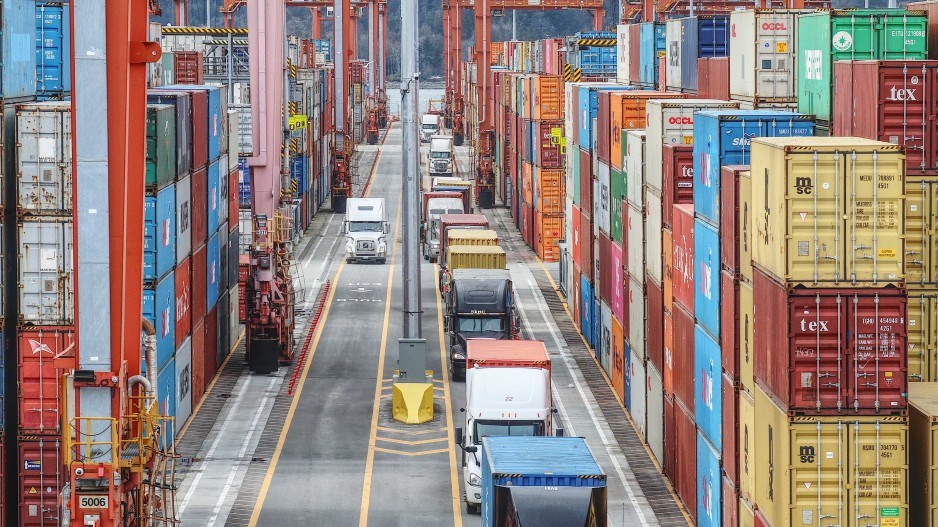B.C. business groups are calling on the new federal government to cut red tape, boost innovation and diversify trade as tariff pressures mount. Their wish list for the new federal government includes mandates for Canadian-made materials in capital projects, expanded tax credits and harmonized rules across provinces.
“We need something drastic,” said Andrew Wynn-Williams, B.C. divisional vice-president of Canadian Manufacturers & Exporters, after the Liberal Party of Canada secured an opportunity to form a minority government after Monday’s federal election.
He said Canadian manufacturing is in a “crisis” after U.S. tariffs — both implemented and threatened — compounded already low rates of productivity in the sector.
Wynn-Williams cited interprovincial trade barriers as a chief concern in reducing the economic impact of tariffs.
The federal government needs to implement one set of regulations and rules across all provinces for manufacturers and exporters, said Wynn-Williams.
And while provincial leaders are “having some pretty intense discussions, we haven’t seen any specific results,” he said.
Wynn-Williams said more tax credits and government subsidies need to be directed to companies seeking to innovate and build up “smart manufacturing,” which is the use of advanced digital technology, including artificial intelligence, to improve efficiencies.
He said his sector must also stickhandle high industrial land costs, especially in big cities such as Vancouver.
Wynn-Williams added he is not in favour of counter tariffs, as this amounts to “shooting ourselves in our feet.”
B.C.’s manufacturing sector contributes $18 billion annually to the province’s GDP, according to government estimates.
Surrey Board of Trade CEO Joslyn Young said much of that contribution comes from her city.
She said expanding trading partners beyond the U.S. is a chief priority for her association.
“Here in B.C. we have an economic and location advantage to increase trade with Asia,” said Young, noting the board frequently hosts trade representatives.
Young said China “has to be part of that equation” although she acknowledged there is still a “political or social conversation” to be had on that front.
“Lots of small and mid-size businesses rely on China,” said Young.
“If we ignore an economy as large as China we miss opportunity.”
Closer to home, the federal government needs to reform the business tax system, she said.
“I’m a glass half full type of person. I like to think big. But yes, it’s a lofty goal,” said Young, adding the Canada Revenue Agency should streamline its filings and align the federal and provincial systems into one.
She said small- and medium-sized enterprises need to have tax incentives that match those of multinational corporations.
“And we need targeted tax credits for innovation and job creation. We must reward businesses that invest in local communities,” said Young.
Noting Surrey has several trucking companies stationed there, Young said a good example of an interprovincial trade barrier is the different regulations around trucking, such as licensing requirements and vehicle weight standards
“The trucking industry is so important to Surrey. We need national standards,” said Young.
Meanwhile, BC Council of Forest Industries CEO Kim Haakstad said the province’s competitiveness is in decline and new tariffs will only add fuel to the longstanding softwood lumber dispute with the U.S., wherein the Americans already impose countervailing and anti-dumping duties on B.C. wood.
Haakstad said that while the federal government does not have as much impact on policies as the provincial government does, it can help the sector out by imposing “wood-first” policies on deferral-funded infrastructure projects.
“[Prime Minister Mark Carney] has a big capital spending plan, but we don’t have details on how wood is built into that,” said Haakstad, who suggested the feds tie funding for housing to such “wood-first” policies.
A new softwood lumber deal with the U.S. must also be a priority for senior governments, she said.



